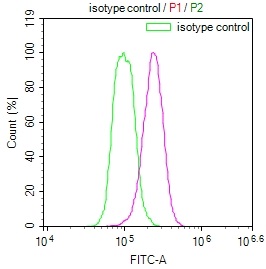ATP6V1B2 Antibody
-
中文名稱(chēng):ATP6V1B2兔多克隆抗體
-
貨號(hào):CSB-PA002398GA01HU
-
規(guī)格:¥3,900
-
其他:
產(chǎn)品詳情
-
Uniprot No.:
-
基因名:
-
別名:ATP6B1B2 antibody; ATP6B2 antibody; ATP6V1 B2 antibody; ATP6V1B 2 antibody; ATP6V1B2 antibody; ATPase H+ transporting lysosomal 56/58kDa V1 subunit B isoform 2 antibody; ATPase H+ transporting lysosomal 56/58kDa V1 subunit B2 antibody; ATPase H+ transporting, lysosomal (vacuolar proton pump) beta polypeptide 56/58kD isoform 2 antibody; ATPase, H+ transporting, lysosomal V1 subunit B2 antibody; brain isoform antibody; Endomembrane proton pump 58 kDa subunit antibody; H+ transporting two sector ATPase antibody; HO 57 antibody; HO57 antibody; V ATPase B2 subunit antibody; V ATPase subunit B 2 antibody; V type proton ATPase subunit B, brain isoform antibody; V-ATPase subunit B 2 antibody; V-type proton ATPase subunit B antibody; Vacuolar ATP synthase subunit B brain isoform antibody; Vacuolar H+ ATPase 56,000 subunit antibody; Vacuolar H+ ATPase 56000 subunit antibody; Vacuolar H+ATPase B2 antibody; Vacuolar proton pump subunit B 2 antibody; VAT B2 antibody; VATB 2 antibody; VATB antibody; VATB2 antibody; VATB2_HUMAN antibody; Vma 2 antibody; Vma2 antibody; VPP 3 antibody; VPP3 antibody
-
宿主:Rabbit
-
反應(yīng)種屬:Human,Mouse,Rat
-
免疫原:Human ATP6V1B2
-
免疫原種屬:Homo sapiens (Human)
-
抗體亞型:IgG
-
純化方式:Antigen Affinity purified
-
濃度:It differs from different batches. Please contact us to confirm it.
-
保存緩沖液:PBS with 0.1% Sodium Azide, 50% Glycerol, pH 7.3. -20°C, Avoid freeze / thaw cycles.
-
產(chǎn)品提供形式:Liquid
-
應(yīng)用范圍:ELISA,WB,IHC
-
Protocols:
-
儲(chǔ)存條件:Upon receipt, store at -20°C or -80°C. Avoid repeated freeze.
-
貨期:Basically, we can dispatch the products out in 1-3 working days after receiving your orders. Delivery time maybe differs from different purchasing way or location, please kindly consult your local distributors for specific delivery time.
-
用途:For Research Use Only. Not for use in diagnostic or therapeutic procedures.
相關(guān)產(chǎn)品
靶點(diǎn)詳情
-
功能:Non-catalytic subunit of the V1 complex of vacuolar(H+)-ATPase (V-ATPase), a multisubunit enzyme composed of a peripheral complex (V1) that hydrolyzes ATP and a membrane integral complex (V0) that translocates protons. V-ATPase is responsible for acidifying and maintaining the pH of intracellular compartments and in some cell types, is targeted to the plasma membrane, where it is responsible for acidifying the extracellular environment. In renal intercalated cells, can partially compensate the lack of ATP6V1B1 and mediate secretion of protons (H+) into the urine under base-line conditions but not in conditions of acid load.
-
基因功能參考文獻(xiàn):
- We conclude that the effects of variation in the vacuolar ATPase may point to a new molecular mechanism that influences the long-term development of depression. This mechanism may involve dysfunction specifically in hippocampal circuitry and cognitive impairment that characterizes recurrent and chronic depression. PMID: 27824360
- ATP6V1B2 is somatically mutated in 22% of follicular lymphoma tumors. Mutation hotspots found at Y371 and R400. PMID: 25713363
- A missense mutation in ATP6V1B2 associated with Zimmermann-Laband syndrome. PMID: 25915598
- The ATP6V1B2 p.Arg506X is a haploinsufficient mutation and resulted in abnormal acidification in lysosomes. PMID: 24913193
- This protein has been found differentially expressed in the anterior cingulate cortex from patients with schizophrenia PMID: 20381070
顯示更多
收起更多
-
相關(guān)疾?。?/div>Zimmermann-Laband syndrome 2 (ZLS2); Deafness, congenital, with onychodystrophy, autosomal dominant (DDOD)亞細(xì)胞定位:Apical cell membrane. Melanosome. Cytoplasm.蛋白家族:ATPase alpha/beta chains family組織特異性:Kidney; localizes to early distal nephron, encompassing thick ascending limbs and distal convoluted tubules (at protein level).數(shù)據(jù)庫(kù)鏈接:
Most popular with customers
-
-
YWHAB Recombinant Monoclonal Antibody
Applications: ELISA, WB, IHC, IF, FC
Species Reactivity: Human, Mouse, Rat
-
Phospho-YAP1 (S127) Recombinant Monoclonal Antibody
Applications: ELISA, WB, IHC
Species Reactivity: Human
-
-
-
-
-



















